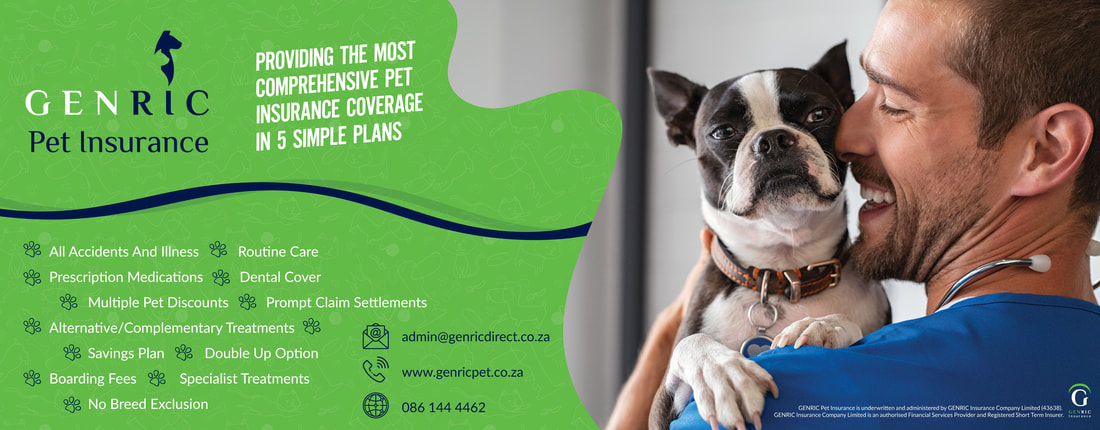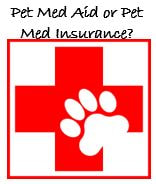What is Pet Medical Insurance and How Does It Work?
Pet medical insurance products are contracts of short-term insurance (not medical aids) designed to cover the unexpected, unforeseen and fortuitous veterinary fees/expenses/costs that cats and dogs kept as household pets in South Africa may incur as the result of illness or injury.
There are variations on the underlying theme e.g. one gets pet medical insurance policies providing cover for veterinary costs/fees/expenses related to accidents only. By definition these policies do not cover any costs/fees/expenses related to illness. Because they cover a lower risk, premiums for these policies are invariably cheaper than those covering illness and accident veterinary expenses.
Please note the intention of underwriters: They intend to cover veterinary fees/expenses/costs which are unexpected, unforeseen and fortuitous. This means that veterinary expenses which are foreseeable, anticipated and within the pet owners’ control are not covered. These expenses are usually referred to as “routine expenses” and include inter alia costs related to periodic vaccinations, voluntary sterilisation, de-worming, dental cleansing, tic and flea control, etc.
Think of car insurance: Nobody insures a car knowing that he/she is going to have an accident or
actually planning to have an accident next Tuesday. One insures a car hoping never to have an accident, but if the unforeseen happens, then you have the insurance to cover the expenses/loss resulting therefrom. Pet medical insurance works on exactly the same principle.
Pet medical insurance products are contracts of short-term insurance (not medical aids) designed to cover the unexpected, unforeseen and fortuitous veterinary fees/expenses/costs that cats and dogs kept as household pets in South Africa may incur as the result of illness or injury.
There are variations on the underlying theme e.g. one gets pet medical insurance policies providing cover for veterinary costs/fees/expenses related to accidents only. By definition these policies do not cover any costs/fees/expenses related to illness. Because they cover a lower risk, premiums for these policies are invariably cheaper than those covering illness and accident veterinary expenses.
Please note the intention of underwriters: They intend to cover veterinary fees/expenses/costs which are unexpected, unforeseen and fortuitous. This means that veterinary expenses which are foreseeable, anticipated and within the pet owners’ control are not covered. These expenses are usually referred to as “routine expenses” and include inter alia costs related to periodic vaccinations, voluntary sterilisation, de-worming, dental cleansing, tic and flea control, etc.
Think of car insurance: Nobody insures a car knowing that he/she is going to have an accident or
actually planning to have an accident next Tuesday. One insures a car hoping never to have an accident, but if the unforeseen happens, then you have the insurance to cover the expenses/loss resulting therefrom. Pet medical insurance works on exactly the same principle.
|
Upon reading the title of this article, you’re probably already thinking that my brain must be clogged with dog hair if I’m suggesting that you set up a 401K for your dog.
|
It’s never too late to make a positive impact on your osteoarthritic dog’s state of health. You can empower your dog to live life to the full, as pain-free as possible.
|
Is there a difference between a Pet Medical Insurance and a Pet Medical Aid and what is the correct terminology?
|





